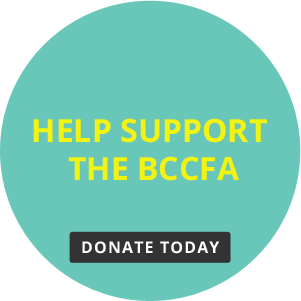Understanding Concussion
Concussions are brain injuries caused by the excessive, rapid movement of the brain inside the skull. The movement causes damage that changes how brain cells function, leading to symptoms that can be physical, cognitive and/or emotional. A concussion can result from a hit to the head or body.
A concussion is a common injury, but since they often cannot be seen on an MRI or CT scan, they can be hard to detect and understand. With all of the new information and public awareness surrounding concussions; doctors, healthcare providers,coaches, trainers and parents are learning how to better identify, manage, and recover from a concussion. Concussions are “mild traumatic brain injuries” and although most will resolve quickly, ALL concussions have the potential for serious and long-lasting symptoms and so must be treated carefully and in consultation with a physician.
Parachute: http://parachutecanada.org/active-and-safe
CATT Tool for Professionals and Coaches: http://www.cattonline.com/
Ontario Neurotrauma Pediatric Concussion Guidelines: http://onf.org/documents/guidelines-for-pediatric-concussion
If you suspect that your child has had a concussion it is important to seek medical assistance immediately by seeing your Family Physician or going to your local Emergency Room.
Symptoms
Symptoms can include:
• Confusion
• Headache
• Dizziness
• Nausea
• Loss of Balance
• Double Vision
• Ringing in the ears
• Slurred speech
• Emotional or personality changes
• Feeling “stunned, dazed or in a fog”
• Loss of consciousness
Remember that symptoms may not appear immediately and may only be noticed 12-24 hours after the injury. Often concussions symptoms are mistaken for the flu. If your child has sustained a concussion it is crucial in the early days (3-5 days) that the child rest, stay home from school and stay away from sports. This will give the brain a chance to begin repairing itself.
Recovery and the Recovery Process
Recovery from concussion varies with every child, but some factors that may affect the recovery process are:
• Having a history of concussions
• Severity of the concussion
• Having a secondary injury such as a soft tissue neck injury
• A previous mental health diagnosis
• A secondary injury to the brain during the healing process
• Returning to sports too soon
• Returning to school too soon
• Sleep disturbances (not enough sleep)
It is common for children to take longer to recover from concussions than adults. Children’s brains are in a stage of rapid development and the demands placed on them cognitively (at school) and physically (through sports and play) means that it is much harder for children’s brains to rest. This is also a critical time for the brain to be injured as the brain has not yet fully developed. It is not un-common for children to have symptoms for 3-6 months after their injury.
When is CBIPCY Intervention Required after a Concussion
Even after taking all of the appropriate steps to help facilitate recovery, some children can still go many months (6 months or more) with symptoms. Sometimes the symptoms go beyond headaches and fatigue into more significant challenges including memory loss, problems with attention, processing, balance and coordination. Children with these symptoms can sometimes benefit from rehabilitation. The CBIPCY will consider a child with a concussion for services if they are 9 months – 1 year post injury and continue to have symptoms such as fatigue, problems with balance & coordination, memory difficulties, attention and processing challenges.
Anyone in B.C. with questions about a child or youth with brain injuries is welcome to call our information line.
Lower Mainland : 604.451.5511 or Toll Free : 1.877.451.5511. 
COMMUNITY BRAIN INJURY
ABOUT CBIPCY
Who Are We
Program Staff
RESOURCES
Brain Injuries
Brain Functions
Concussions
For Families
For Youth
Downloads & Links

